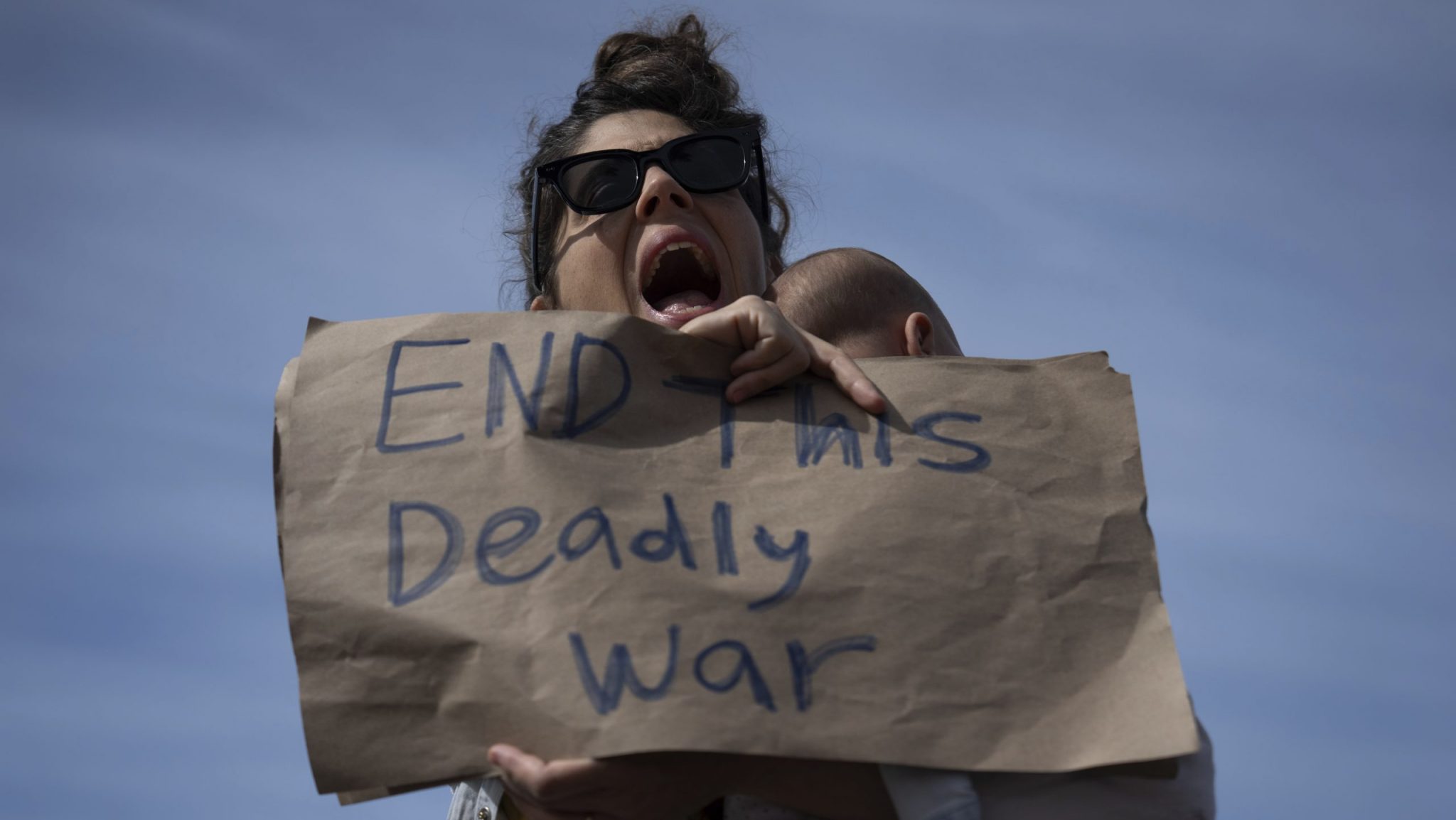The Metro: The war in Gaza’s impact on the American Jewish community
Peter Beinart, editor-at-large of Jewish Currents, joined the show to share his insight into the Jewish American perspective on the ongoing conflict in Gaza.

Israelis demonstrate to demand the release of the hostages from Hamas captivity in the Gaza Strip, during a protest outside of the U.S. Embassy Branch Office in Tel Aviv, Israel, Friday, March 1, 2024.
As the death toll in Gaza continues to rise — with more than 30,000 Palestinians killed since the start of the war precipitated by Hamas’ Oct. 7 attack — many members of the American Jewish community are concerned that Israel’s extreme military response could destroy any hope for future peace.
Peter Beinart, editor-at-large of Jewish Currents and author of the “Beinart Notebook” Substack, joined The Metro on Friday to discuss how the war is impacting Jews in America. He says there are many within the community who feel that Israel would be a safer place for Jewish people if Palestinians are also safe.
“There are two populations that live there,” Beinart said. “It will be a safer place for Jews to call home if Palestinians can also have the basic rights and dignity that allows them to feel at home there as well.”
Still, there are many others in the Jewish community who fear that the state of Israel is not safe as long as Hamas remains in control of Gaza, and would support a ceasefire only after the remaining Israeli hostages are released from captivity.
Beinart says there is a largely generational split within the community, with older Jews more likely to support Israel’s deadly campaign to eradicate Hamas while younger people are more likely to be critical of its extreme right-wing leadership.
“If you look at the protests all around the country calling for a ceasefire, many of them are being organized with American Jews at the forefront, mostly younger American Jews, who for them, their conception of Jewishness leads them to be much more pro Palestinian.”
Beinart says he grew up in a Zionist family, but his views began changing when he spent time in the West Bank.
“I still feel a very strong connection to Israelis and Israeli society, but at a certain point in my life, as a young adult, I went and spent time in the West Bank with Palestinians,” he said. “And it was a really transformative experience.”
Use the media player above to hear the full interview Peter Beinart, editor-at-large of Jewish Currents.
More headlines from The Metro on March 1, 2024:
- Hosts of the RA Exchange Podcast, Crystal Moiner and Alanna Greenlee, joined the show to talk about “Detroit’s Blueprint,” a three-part series celebrating the podcast’s 700th episode that explores the history of Detroit Techno from the perspective of the women who built it.
- The Federal Emergency Management Agency is establishing new disaster relief centers throughout Michigan. FEMA Media Relations Specialist Larissa Hale shares how Michiganders in need can get assistance.
- Periodicals is a new store preserving physical media in the digital age. Aleiya Olu, founder of From Us to You and co-owner of Periodicals, joined the show to discuss what you’ll find on the shelves.
- Robert Ayala has worked with The Clark Park Hockey Association since the ’90s. He spoke with WDET’s Sascha Raiyn about getting young Detroiters interested in the sport as coach of the Clark Park Sharks and Tiger Sharks.
Listen to The Metro weekdays from 11 a.m. to 2 p.m. ET on 101.9 FM and streaming on-demand.
Trusted, accurate, up-to-date.
WDET strives to make our journalism accessible to everyone. As a public media institution, we maintain our journalistic integrity through independent support from readers like you. If you value WDET as your source of news, music and conversation, please make a gift today.

